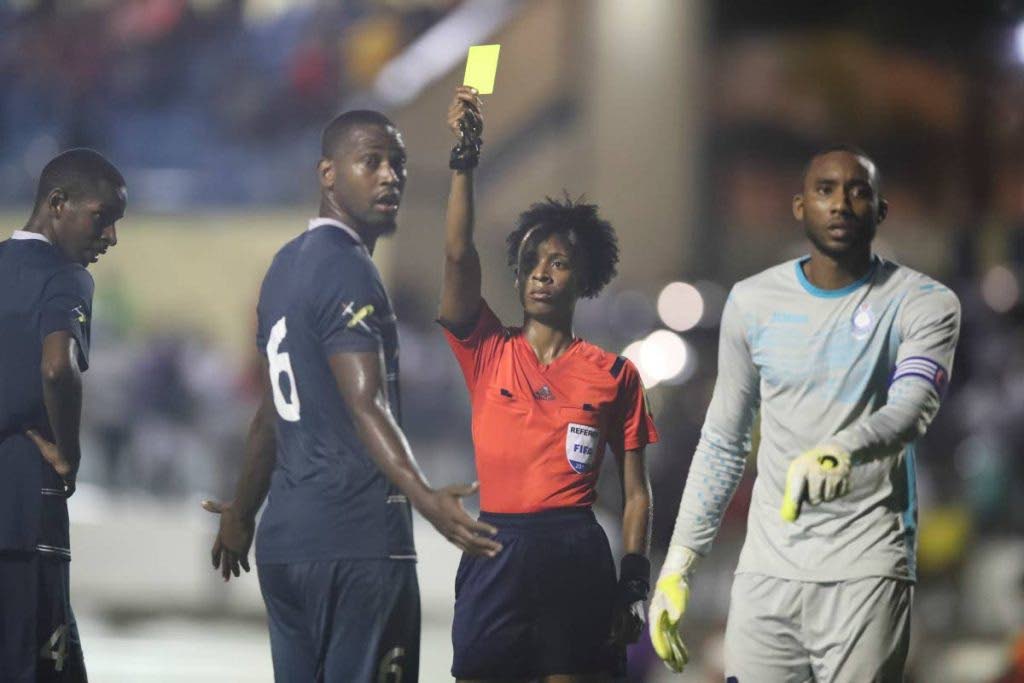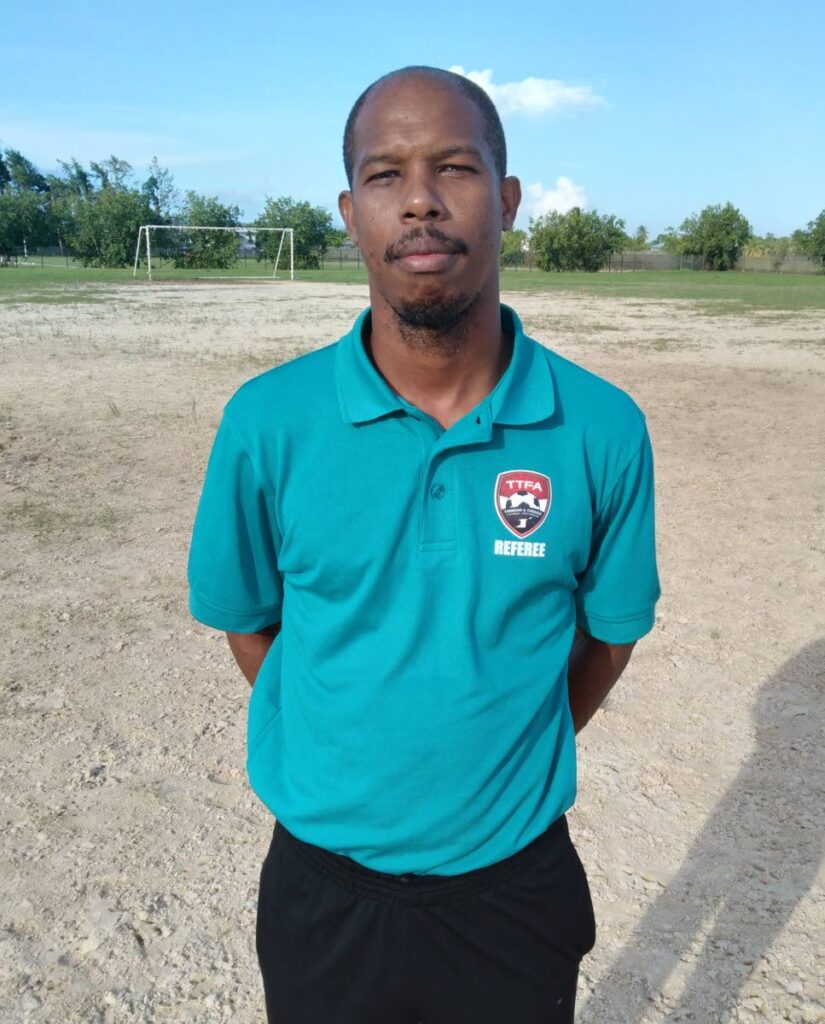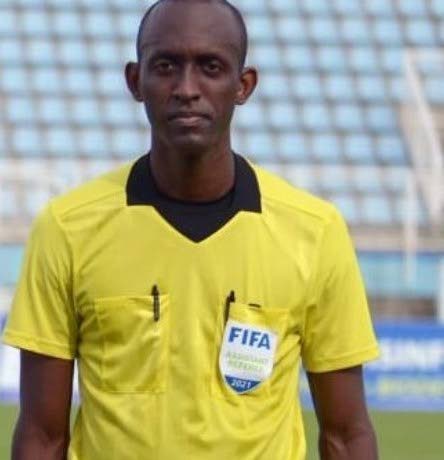Refereeing the beautiful game

AS the 2022 FIFA World Cup gets set to kick off in Qatar, all eyes will be on the game’s biggest stars – Neymar, Lionel Messi, Kevin De Bruyne, Karim Benzema, Vinicius Jr, Kylian Mbappe and Harry Kane. Flair, creativity, vision and goals – all hallmarks of the beautiful game – will be on show from November 20 to December 18.
While young footballers dream about representing their country at the World Cup, there are some who wish to be involved in a different capacity. The beautiful game is not just about star players, in fact, it is not just about the players.
What would football look like without the referees and assistants to keep the game within the legal parameters.
For some, the performance of the referee is equally important to ensure a good spectacle.
A whistle-happy referee could ruin the flow of a game, curb end-to-end action and deprive fans of a special moment.
However, a referee that isn’t firm in enforcing the rules could result in a game descending into chaos and danger to players.
Trinidad and Tobago did not qualify for World Cup 2022 but we will still be represented in Qatar.
Assistant referee Caleb Wales was named among 129 match officials (36 referees, 69 assistant referees and 24 video match officials) to officiate in Qatar. Wales will be the fifth TT official to represent at a FIFA World Cup, following Douglas James (assistant referee, 1994 in the United States), Ramesh Ramdhan (referee, 1998 in France), Merere Gonzales (assistant referee, 1998 in France) and Michael Ragoonath (assistant referee, 2002 in South Korea and Japan).
Sangre Grande referee Nicholas “Pele” Augustus told Newsday he is delighted to see Wales on the big stage.
“He’s one of our own...I’m really glad Caleb is there, but I would like to see more referees from the Caribbean, especially in Trinidad, make it on the World Cup stage. We have Caleb Wales – kudos, I’m proud of that, but I’d like to see more than just one.”
Augustus believes referees deserve more respect as they have the hardest job on the field.

“If a player goes out there and takes a shot that went straight over bar, yuh go say, ‘Hard luck.’
“But if a referee doesn’t make a precise call or correct decision they won’t say hard luck, they go say, ‘Referee, yuh doing...”
Local referee Crystal Sobers, 41, a 2018 nominee for CONCACAF Female Referee of the Year, said Caribbean referees have it tough as they balance refereeing duties with their regular jobs.
“I work 8am-3pm, then I have to go and train. I train like an elite athlete. You have strength, conditioning, speed; different days you allocate to do something different, because it’s different muscles you working with.”
She said referees always have to get better through sessions hosted by the TT Referees Association and Concacaf.
“FIFA also implemented this new portal, so as the game develops the referee has to develop too.”
Asked about being cognisant about what she consumes, she added, “You do, it’s mandatory that you do – and that in itself is an expense.”
Sobers said most football organisers and spectators are not considerate of the work referees put in.

“You want us to perform at the best in your game, but what are the fees? You not thinking about us, you just want your game to be played.”
She said at the Pro League level referees make minimum $200 per game. “We can’t pay for transport to come your game, buy (something to) eat and drink (and get paid a small fee). This is what affecting the referees in the local capacity.”
Augustus also weighed in on the remuneration for referees.
“I glad you hit that point. I don’t think referees getting (sufficient) financial payment. Imagine, a school game you paying $100 or $120 a referee – that ain’t making sense.”
He said referees often have to take time off from their jobs to reach a game in time for kickoff.
“When we take a day off or half day, are we getting back our salary? Either we loss a day work or half our salary. Is it fair?”
VAR IN THE MODERN GAME
Sobers said as an elite referee, it is easier to assess a game and its demands when compared to the grassroots level.
“In grassroots you wouldn’t know the tactics they’re coming with. In Pro League, you might say, ‘Oh, this is a 4-3-3, so you know how to pace yourself – this team loves to do counterattacks, so you know it’s a tactical game; this team gonna play flank, so it’s gonna be speed.”
The 2022 World Cup will be the second to feature the video assistant referee (VAR). The technology has caused as much controversy as it has resolved, with many footballers and coaches not happy with its use.
Roma coach Jose Mourinho has been a harsh critic, saying “the football is another sport” because of VAR.
Sobers said VAR provides its own challenges for referees. She said players and fans must realise that referees can also make mistakes. “Referees are human beings. Even with the VAR, it’s human beings behind that. Mistakes will happen.”
On her own experience with VAR, she said was given a crash course on the use of the technology before a Concacaf under-20 match. “It’s a nervous experience. There are more cameras on you and they’re picking up any little thing that you missed. There are only four windows that it can intervene. For me, it is a pressurising thing. It’s not only the spectator (pressure).”
Augustus is not a fan of VAR. “Let the referees do the job and let the assistants do their job,” he said.
“VAR trying to eliminate assistant referees, I believe. And just now you might eliminate referees on the whole.
“If a referee didn’t see something, VAR will pick it up. I don’t believe in VAR but it is what it is. They’re trying to improve the game so no team gets cheated.”
WHAT MAKES A GOOD REFEREE?
International football has been blessed with some great referees whose performance have been so impressive that their faces are etched into the memories of fans – even if their names are not.
Italian Pierluigi Collina is arguable the most famous referee of all time. He was voted FIFA Best Referee of the Year for six consecutive years and is still involved in the technical side of the game. Collina has refereed an Olympic final, a UEFA Cup final, Champions League final and a World Cup final.
But what makes a good referee?
Sobers, a former national under-20 footballer, believes her playing the game augured well for her refereeing career. “You know where the players coming from, you have that understanding; you have a special word with them and they know where you coming from.
“If you weren’t in that environment (as a player), everything will be a personal energy for you. You will wanna caution a player for saying something in a high-intensity moment.”
However, Sobers said it is not necessary as some referees with zero playing experience are still able to do a good job.
“It’s how you see the game.”
Augustus said referees must be passionate.
“I wanted to become a referee when I was playing football in (Ojoe Road) Recreation and I told a referee: ‘How you could make a call like that when I ain’t even touch the player.’
“Is only when I became a referee and I understand what he looked at, I say, ‘Wow, this is a hard job to be a referee.’”
Augustus said he has learned a lot from observing 1998 World Cup assistant referee Gonzales.
“He improved me to what I am today. I look at Gonzales and I love his charisma and take pattern from him. Also Mr Ragoonath, a very good referee. The passion and the way they carry about themselves and the manner – wow, this is professionalism, I love this, I want to be just like this person.”
Sobers said her entry into refereeing “was not a bed of roses” but she has been able to demand and earn her respect.
She believes more female referees and instructors are needed to make the sport more inviting to women.
Augustus called for more overall respect for local officials, arguing that his colleague are sometimes even assaulted by players and spectators. He believes swifter justice is needed to deter offenders.
Nevertheless, he believes the local standard of refereeing is rising but called for more training for officials to continue to get better.

Comments
"Refereeing the beautiful game"